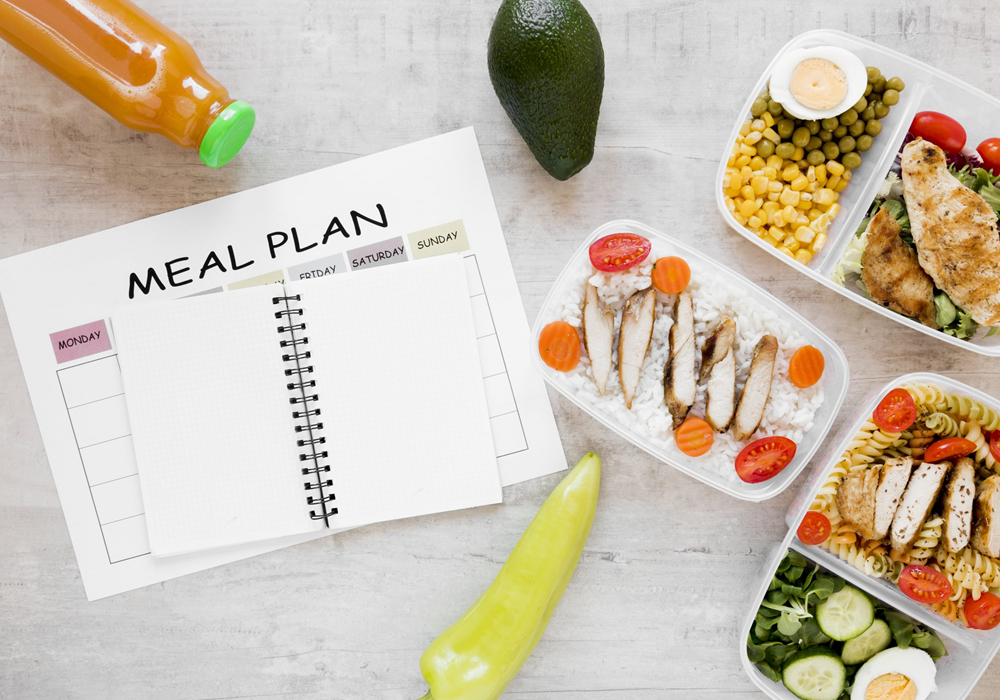Understanding Your Goals
Before diving into meal planning, it’s essential to identify your health goals. Are you aiming to lose weight, maintain your current weight, or perhaps increase your energy levels for workouts? Understanding your objectives allows you to tailor your meal plan to meet your specific needs. For instance, if weight loss is your goal, focusing on nutrient-dense foods that are lower in calories will be beneficial.
Creating a Balanced Menu
A successful meal plan should encompass a variety of food groups to ensure you’re receiving all the essential nutrients. Aim to include lean proteins, whole grains, healthy fats, and plenty of fruits and vegetables. For example, a typical day might include oatmeal topped with berries for breakfast, a quinoa salad with grilled chicken for lunch, and baked salmon with steamed broccoli for dinner. Snacks can consist of nuts, yogurt, or fresh fruit, keeping your energy levels stable throughout the day.

Portion Control and Mindful Eating
Portion control is a critical component of effective meal planning. Using measuring cups or a food scale can help you understand serving sizes, preventing overeating. Additionally, practicing mindful eating—taking the time to savor each bite and listen to your body’s hunger cues—can enhance your dining experience and help you recognize when you’re full.
Preparing in Advance
One of the most effective strategies for sticking to your meal plan is preparation. Dedicate a few hours each week to meal prep. Cook large batches of grains, proteins, and roasted vegetables that you can mix and match throughout the week. Portioning out snacks and meals in advance can also make healthy choices more convenient, reducing the temptation to reach for less nutritious options.
Flexibility and Variety
While structure is important, flexibility should also be a part of your meal planning. Life can be unpredictable, and it’s essential to adapt your plan as needed. Incorporating a variety of foods not only keeps meals interesting but also ensures you’re getting a wide range of nutrients. Don’t hesitate to switch out ingredients based on seasonal availability or personal preferences.
Monitoring Your Progress
Finally, keep track of how your meal plan is affecting your health and well-being. Journaling your meals, energy levels, and any changes in your body can provide valuable insights. Adjust your plan as necessary to continue progressing toward your goals.
In conclusion, a well-crafted meal plan is a powerful tool for achieving a healthier lifestyle. By understanding your goals, creating balanced menus, preparing in advance, and allowing for flexibility, you can make nutritious eating a seamless part of your daily routine. Start today, and watch as your commitment to meal planning transforms your relationship with food and your overall health.

